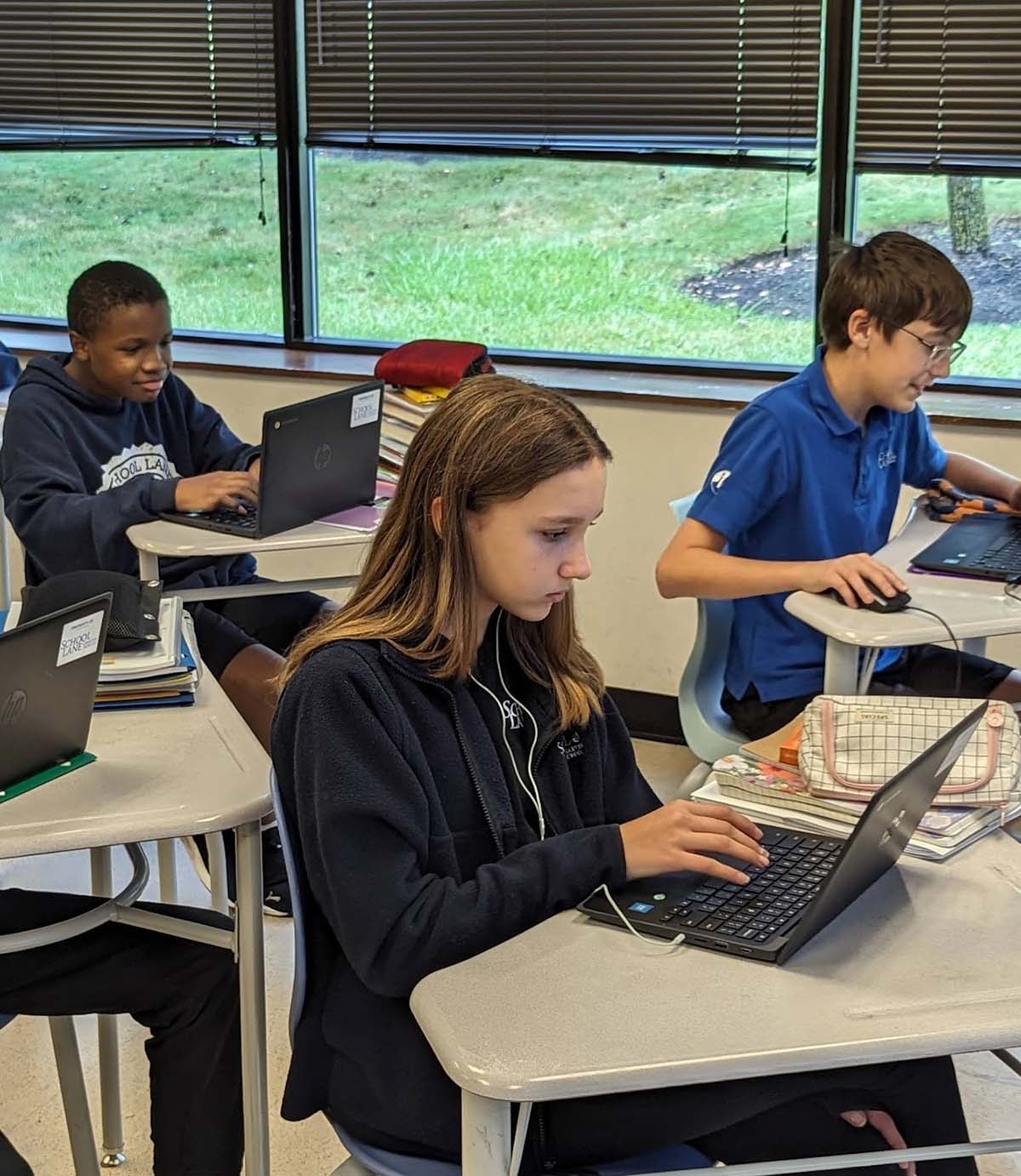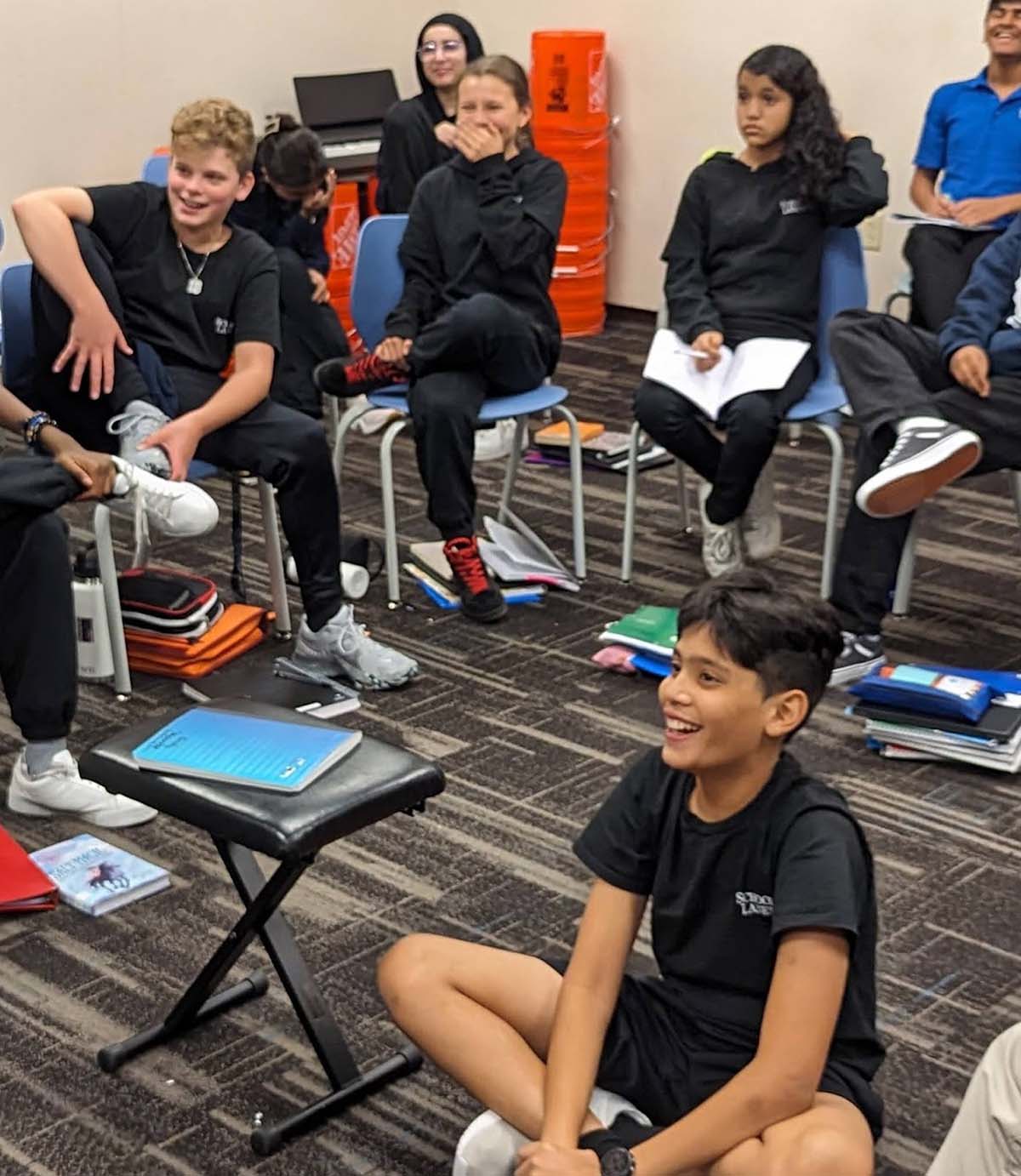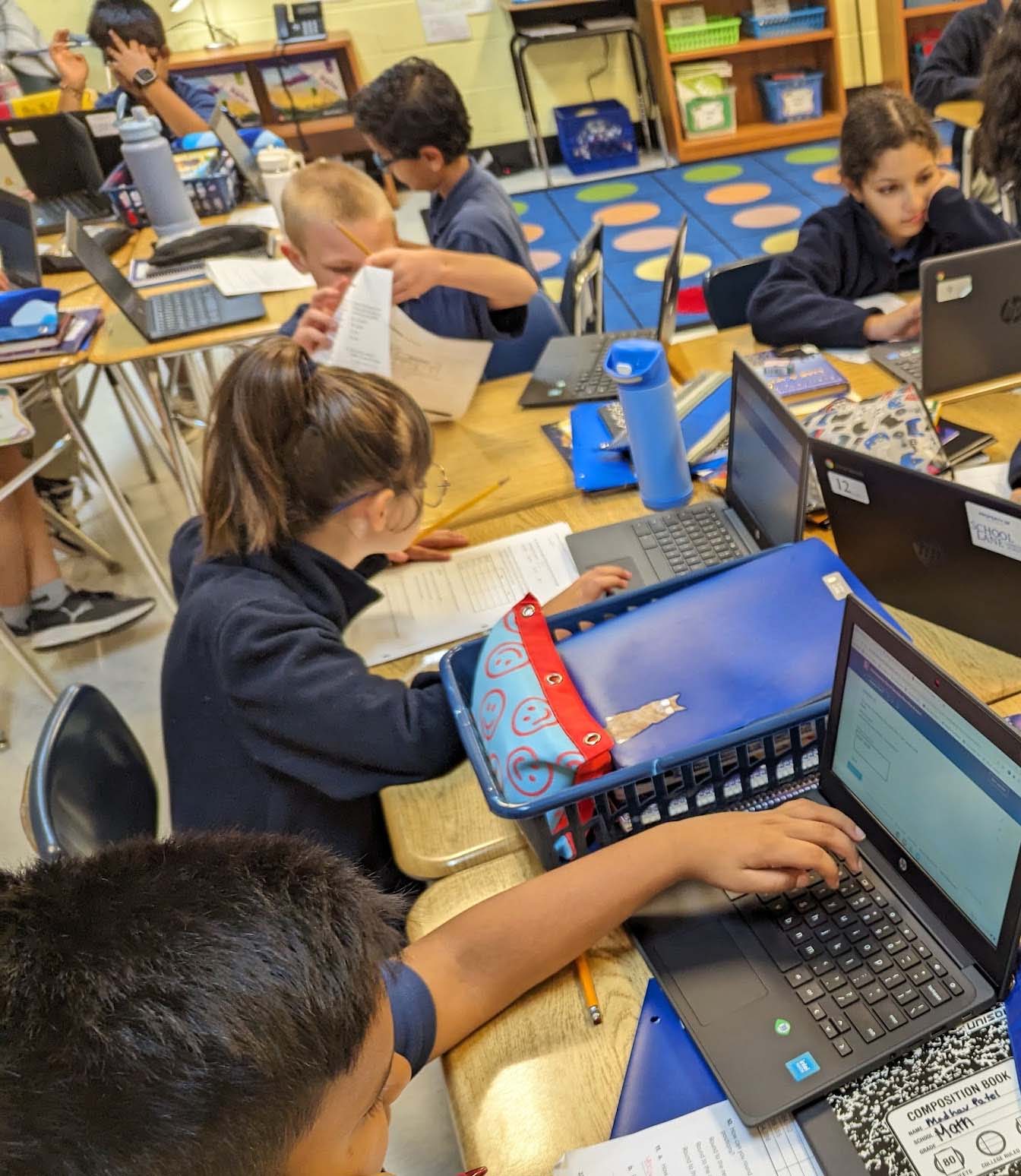7-10 Curriculum: The Middle Years Program
This curriculum builds on foundational knowledge and equips students with the critical thinking and problem-solving skills needed for the IB Diploma Program and beyond.
The Middle Years Program (MYP) offers a dynamic, interdisciplinary curriculum designed to connect traditional subjects with real-world applications, preparing students for the IB Diploma Program and beyond.
Key Features
Interdisciplinary Learning:
The MYP integrates subjects to encourage students to explore themes across disciplines.
Example: 7th Grade has two interdisciplinary units. One combines knowledge from performing arts and language acquisition. Students are challenged to study and develop ways of communicating without or with limited common language. Another unit is on Media, taking knowledge from Individuals and Societies and Language and Literature to examine how disasters are reported when it is a local event as opposed to somewhere overseas.
Global Contexts:
Students tackle real-world challenges through globally relevant themes such as identity, innovation, and sustainability.
Example: In 8th grade, students study Scientific and Technical Innovation through a unit on electricity and magnetism.
Inquiry-Based Learning:
Lessons are built around essential questions that guide exploration and deepen understanding.
Example: In 7th grade Math, students are asked to consider how representing complex patterns with generalized systems allows us to express relationships in equivalent form to solve scientific and technical problems.
Personalized Support:
Students receive individualized attention through differentiated instruction, ensuring they are both challenged and supported at their level. Many classes in 7th and 8th grade have co-teachers.


Core Academic Subjects
The MYP curriculum focuses on interdisciplinary connections and skill development across core subjects.
English Language Arts (ELA): Analyze global issues through a wide range of literature, fiction and nonfiction. Write in multiple genres and forms in creative and analytical ways.
Mathematics: Explore concepts in algebra, geometry, probability and statistics and data analysis with a focus on real-world problem-solving.
Sciences: Engage in hands-on experiments and inquiry projects that explore biology, chemistry, physics, and environmental science.
Individuals & Societies: Examine global issues, innovations and changes in society through the lens of history and multiple nations.
World Languages: Expand Spanish proficiency through advanced grammar, cultural studies, conversational practice and writing skills.
The Arts: Develop creativity through visual and performing arts, integrating artistic expression with academic inquiry.
STEM: Design classes apply technology and engineering principles through projects that emphasize innovation and problem-solving.
Signature Events and Projects
At School Lane, students engage in meaningful projects that deepen their understanding and prepare them to excel as global citizens.
Students are required to complete two activities each year to fulfill requirements for Service as Action. Students organize and participate in community service in their own neighborhoods and in school. Partnering with Bucks County Conservation Society and Friends of Poquessing Watershed students designed, planted and now tend a Pollinator Garden on school grounds.
Personal Project (Grade 10): The capstone of the MYP, this interdisciplinary project allows students to create original works such as essays, science experiments, art, or events, applying their skills to real-world challenges.
What Sets School Lane Apart?
Focus on inquiry and application of knowledge: Teaching at School Lane begins with asking students questions to spark curiosity. Students are led to ask their own questions and make connections to prior knowledge and experiences.
Global Perspective: Students explore real-world challenges through the IB framework, preparing them to think critically and act globally.
Innovative Projects: Interdisciplinary projects connect academic subjects to real-life applications, fostering curiosity and engagement.
Commitment to Community: With small class sizes and individualized instruction, each student receives the attention they need to succeed academically and personally.

